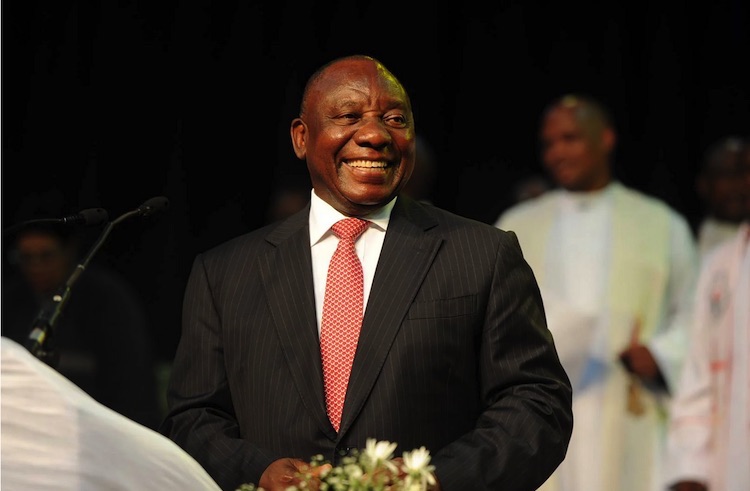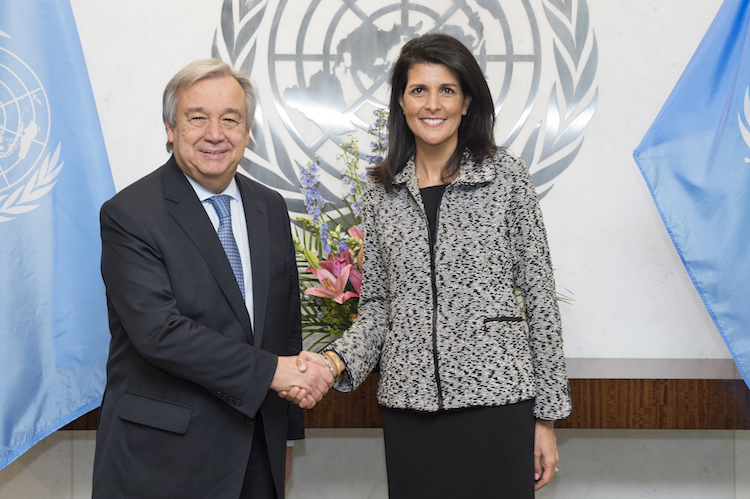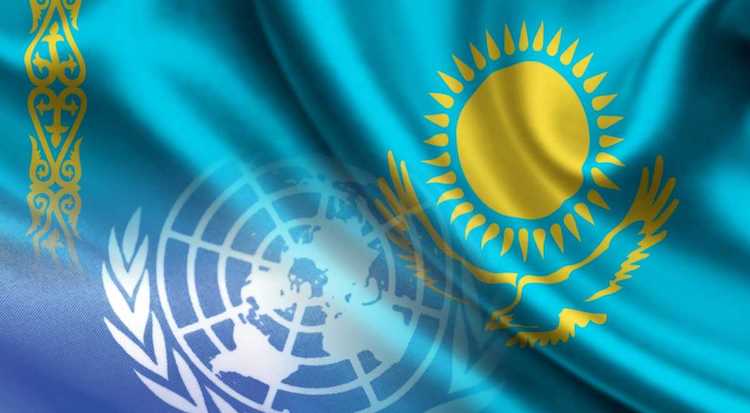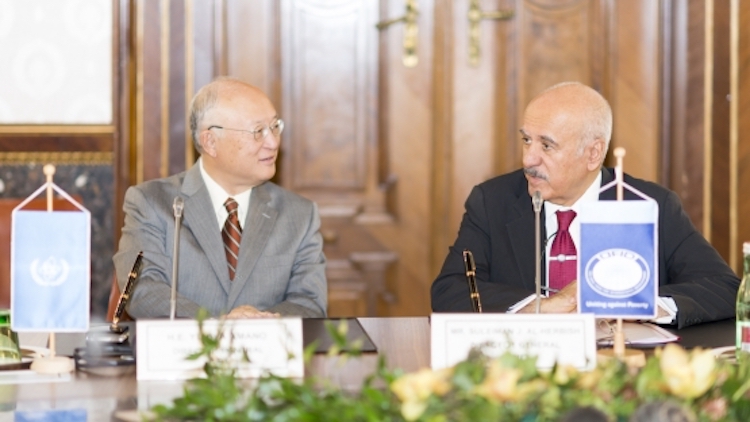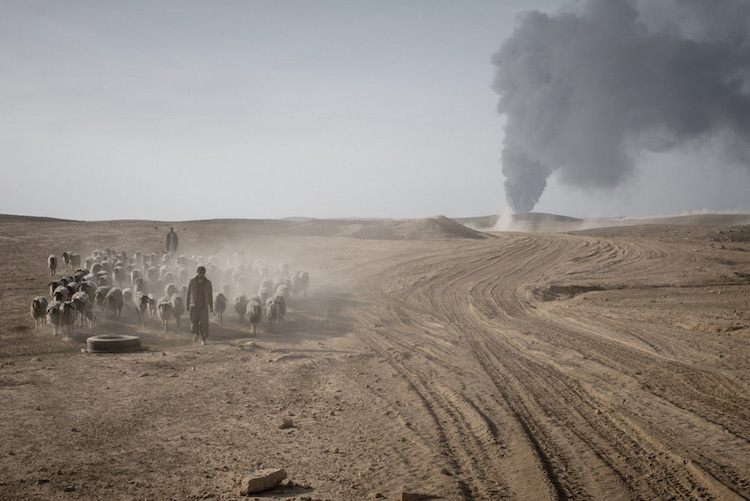By Global Information Network NEW YORK | PRETORIA (IDN) – A shakeup in the African National Congress has boosted hopes that new party officials will make a clean sweep of the backroom dealings that have made millionaires out of a small South African elite and punished the majority with high unemployment and a national credit […]
Liberian Soccer Icon Plans Sweeping Changes as New President
By Global Information Network NEW YORK | MONROVIA (IDN) – George Weah, Liberia’s president-elect, declared the country open to investment and pledged to tackle entrenched corruption, in his first speech to the nation since decisively winning an election on December 30, 2017. Speaking at a press conference at his party headquarters, Weah thanked his predecessor, […]
UN Chief Faces A Challenging 2018
By Erol Avdovic The writer is Senior Diplomatic Correspondent of WebPublicaPress Online Magazine. This article first appeared on WebPublicaPress with the headline ‘2018 Very Challenging Year for Antonio Guterres.’ It is being reproduced with slight modifications. UNITED NATIONS (IDN-INPS) – When the new Secretary-General of the United Nations Antonio Guterres took office one year ago, […]
New Year … Let Us Unite Against the New Obscurantism!
Viewpoint by Michele Zizzari* CASTELLAMMARE DI STABIA, Italy (IDN) – What can we say about the fact that we live in such an inhuman world … where even the most superfluous of personal whims, the smallest interest or private profit is enough to make us completely ignore others or consider them (especially if poor, or for some […]
As the First Central Asian Country Kazakhstan Assumes Security Council Presidency
By Ramesh Jaura BERLIN | UNITED NATIONS (IDN) – When Kazakhstan joined the 15-nation United Nations Security Council (UNSC) on January 1, 2017 as a non-permanent member for two years, President Nursultan Nazarbayev pledged “adapting the . . .Council and the entire UN system to the threats and challenges of the 21st century.” “We will […]
UN Chief Issues ‘Red Alert,’ Calls for Defending Shared Values
By J Nastranis UNITED NATIONS (IDN) – United Nations Secretary-General António Guterres has issued “a red alert for our world” in his message on the occasion of 2018 New Year. It’s probably the first time ever a UN Chief has done so. He does not explicitly refer to the nuclear muscle-flexing between the United States […]
OPEC Fund Supports UN Atomic Energy Agency to End Hunger
By Jutta Wolf BERLIN | VIENNA (IDN) – The Organization of Petroleum Exporting Countries (OPEC) Fund for International Development (OFID) has joined hands with the United Nations atomic energy agency in achieving Sustainable Development Goal 2 on ending hunger, achieving food security Backed by the OFID grant of US$ 600,000, the International Atomic Energy Agency […]
Conflict and Crises Impeding Efforts to Eradicate Hunger
By Santo D. Banerjee NEW YORK (IDN) – Strife and violence in some countries in the Near East and North Africa are casting a shadow on prospects for Zero Hunger across the entire region by 2030, according to a new report. The 2017 edition of the Regional Overview of Food Security and Nutrition in the Near […]
Planet Earth Suffers as Politics Rearranges the Deck Chairs on the Titanic
Viewpoint by Roberto Savio The writer is publisher of Other News, an eminent proponent of “information that markets eliminate” and founder of IPS-Inter Press Service News Agency. This article is being reproduced courtesy of Other News with the writer’s permission. He can be contacted at utopia@robertosavio.info and his articles and comments can be read on […]
Investment Boosts Protected Areas Across 79 ACP States
By Jaya Ramachandran BRUSSELS (IDN | IUCN) – “The protection and sustainable management of biodiversity in ACP countries requires a comprehensive approach that extends beyond the establishment of protected areas,” according to Patrick I. Gomes, Secretary-General of the ACP Group. It is against this backdrop that the ACP (African, Caribbean and Pacific) Group of States […]

